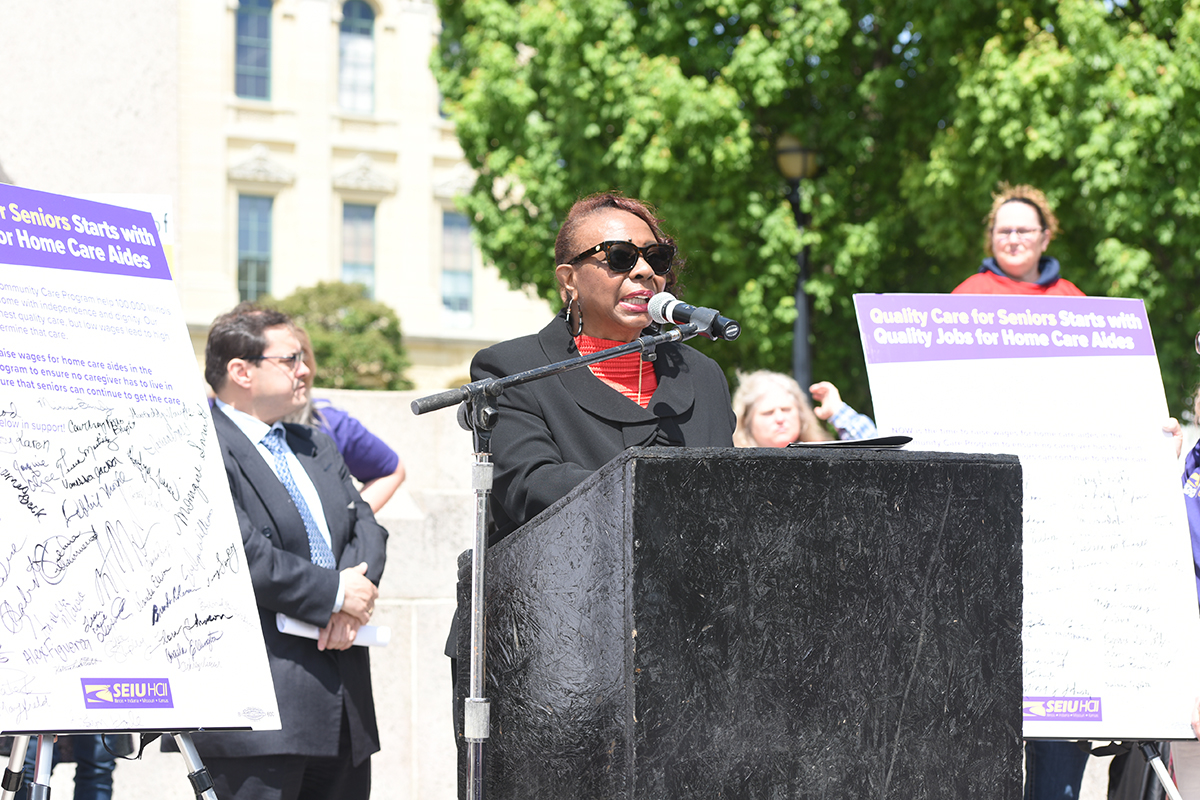
“Right now, home care agencies are struggling to recruit and retain caregivers in every corner of the state,” Hunter said. “Why? Because the average Illinois home care worker’s hourly wage is only $11.08.”
Hunter is the chief co-sponsor of Senate Bill 2019, which would provide agencies a rate increase to ensure that every home care aide working through the Illinois Department on Aging’s Community Care Programs earns at least $13 per hour by July 1, 2019.
For years, funding for programs under the Community Care Program have gone unchanged, which leaves care providers unable to raise workers’ wages and has left Illinois unprepared to deal with workforce shortages. Projections also show that the population of Illinoisans over the age of 65 will grow by one-third by 2025, ballooning to 2.5 million people. Currently, the state needs 19,500 more workers to meet demand, but will also need another 12,000 workers annually to account for high turnover rates as caregivers are pushed out of the industry in search of better-paying jobs.
“Low pay contributes to high turnover rates that undermine seniors’ quality of home care services when good providers leave for a better paying jobs,” Hunter said. “Raising wages is the least we could do for our seniors and home care workers.”
Hunter also discussed the need to stabilize the program that provides vital home care services to more than 100,000 Illinois senior residents and supports dignified aging while maintaining independence safely and healthily.
“Continuing to provide high quality home care services for our seniors to avoid costly nursing home care must be a priority for us,” Hunter said. “As a state, we must invest in our priorities. Yes, this rate increase will cost money, but the savings we experience from this program overall makes this investment both prudent, necessary and the right thing to do to support one of our most vulnerable populations and the men and women who care for them.”

